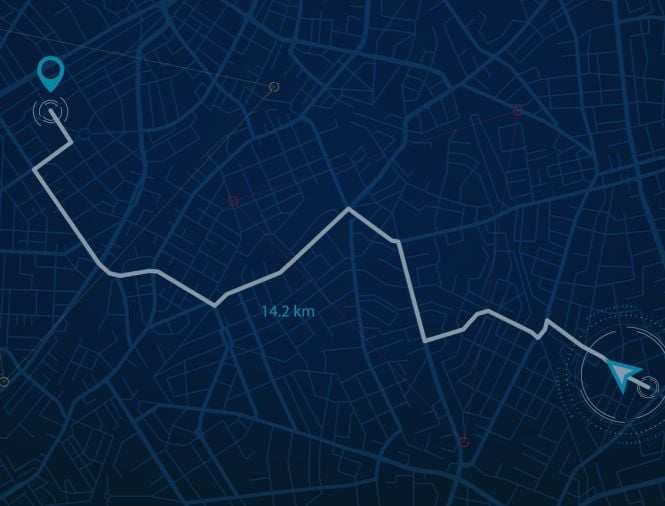
Early Warning System for Future Pandemics
Overview
Despite unprecedented advances in medical science that enabled the development of novel COVID-19 vaccines and therapies at record speed, the COVID-19 pandemic exposed deep deficiencies in our ability to detect, prevent, and respond to global health threats. FasterCures has sought to bring together global health leaders and experts to advance a vision for a coordinated global early warning system to address a key gap in current global disease surveillance efforts.
2023 Global Conference Session: A Roadmap for Biosecurity
Many experts refer to climate change as a "threat multiplier" because it can exacerbate such global stressors as poverty, food insecurity, and political instability. Climate change is also linked to an increased risk of infectious diseases, as rising temperatures enable more pathogens to survive and spread. That risk is compounded as we encroach ever more on the natural habitat, creating more opportunities for human-animal interaction, thus increasing the risk for zoonotic spillover. To mitigate these risks, there must be greater coordination across and within government agencies, but the public sector cannot and should not do it alone. In this panel, experts will lay out a path to enable broader multi-sectoral and multi-stakeholder collaboration in responding to the threats to global biosecurity.

Early Warning System for Future Pandemics
Related Content
-

Financing Global Early Warning Systems Country Case Study: Indonesia
This case study focuses on Indonesia, where an immense population (277.5 million people as of 2023), geographical distribution, and income disparity intensify the intricacies of health management across the nation.Read Report


-

Financing Global Early Warning Systems Country Case Study: Brazil
This case study focuses on Brazil. With dense urban centers (where nearly 90 percent of the population lives), a landmass that spans the Amazon rainforest and borders with 10 countries, and a tropical climate, Brazil is particularly...Read Report -

Financing Global Early Warning Systems Country Case Study: Kenya
This case study focuses on Kenya, where a population of 55 million people, multiple climate zones, and escalating health challenges due to climate change present unique challenges when it comes to establishing an EWS.Read Report -

Data Governance for Early Warning Systems
The COVID-19 pandemic resulted in the proliferation of new data that have created unprecedented opportunities to establish early warning systems for pandemics. These systems not only have capabilities to predict and detect pathogens that...Read Report -

Protecting the Progress for Biomedical Innovation: A Post-Pandemic Scorecard
Since early in the COVID-19 pandemic, FasterCures has been committed to capturing lessons learned and opportunities to improve the biomedical research ecosystem. Our first white paper, Lessons Learned From COVID-19: Are There Silver Linings...Read Report -

Innovative Finance Models for Global Early Warning Systems for Pandemics
Despite lessons learned from COVID-19 and other outbreaks, the world remains ill-prepared for the next pandemic. Since 2020, FasterCures has promoted collaboration to develop and improve early warning systems around the world, convening...Read Report

 IH
IH
-

What Can Global North Learn from Global South: Lessons from Past Pandemics and Epidemics
Written by Jacobs and FasterCures, a center of the Milken Institute, this report highlights the deficiencies exposed by the COVID-19 pandemic in responding to public health crises and encourages decision makers and policymakers to apply the...Read Report

 JB
LG
NK
GS
Esther Krofah, Sung Hee Choe, Alisha Sud, Jane Blake, Leah Goodman, Nino Kharaishvili, and Gabrielle Sobel
JB
LG
NK
GS
Esther Krofah, Sung Hee Choe, Alisha Sud, Jane Blake, Leah Goodman, Nino Kharaishvili, and Gabrielle Sobel -

A Global Early Warning System for Pandemics: Perspectives from the Front Lines
The COVID-19 pandemic exposed critical gaps in the world’s ability to detect, track, and analyze pandemic threats. The international community has responded with a renewed push for a globally coordinated early warning system that is capable...Read Report
 AD
SG
AD
SG

-

Milken Institute Outlines Next Steps for Mobilizing an Early Warning System for Pandemics
Washington, DC, March 30, 2022—Recognizing the most effective way to combat the next pandemic is to start planning for it now, FasterCures, a center of the Milken Institute, released key considerations and next steps for mobilizing an early...Read ArticleImage
Chad Clinton
Director, Media RelationsChad Clinton is the director of media relations for the Milken Institute. Hired to this role in August 2021, Clinton develops and executes strategies to amplify the Institute’s core messages by generating coverage of its pillar workstreams, experts, and events.
FasterCures Global Early Warning System Project Recognized at Paris Peace Forum
A selection of our Global Early Warning System for Pandemics project was recognized during the 2021 Paris Peace Forum for being an innovative project related to health governance to fight the COVID-19 crisis and prevent future pandemics.
Featured Media
Preventing the next pandemic urgently requires partnerships at every level
The most effective way to combat the next pandemic is to begin planning for it now
Recognizing the most effective way to combat the next pandemic is to start planning for it now
Putting in place early-warning systems for future dangerous pathogens promises to be a key mission for public policy and above all for preparedness at an international level


